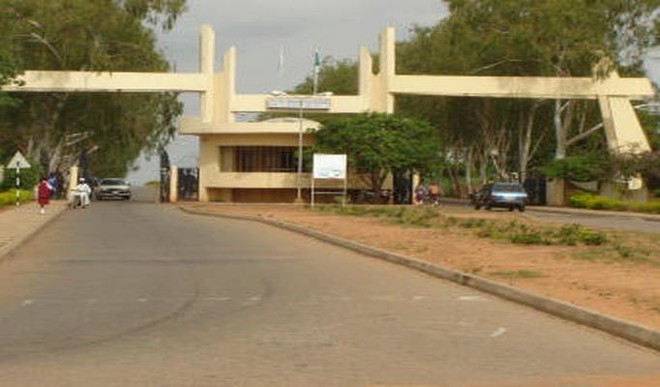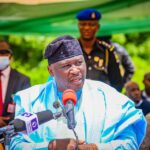The Federal Polytechnic Bida in Niger is currently in the spotlight, and the media is not missing any details. Of the most cheering news, is the reappointment of its Rector, Dr. Abubakar Dzukogi for a second term, approved by no other person than President Muhammadu Buhari himself, even as the letter effecting the approval was signed by the Minister of Education, Malam Adamu Adamu.
To those who have followed the transformation in the institution within the last four years that Dzukogi has been superintending over its affairs, the gesture which observers agreed was well deserved, did not come as a surprise, but a reward for meritorious service; a testimony of confidence earned. He so endeared himself to the hearts of the Polytechnic community and its management that the Governing Council had to endorse him for a second term.
It was this overwhelming endorsement that the supervising ministry which had monitored his success story over the years, upheld and recommended for presidential approval. The minister himself acknowledged Dzukogi’s many strides when he urged him to further consolidate the gains recorded so far in the reappointment letter.
However, to Dzukogi, this second coming is rather an opportunity for consolidation, having laid a solid foundation during his first tenure, and having risen through the ranks in the same institution from the lowly position of Lecturer III to Deputy Rector and later substantive Rector, no one understands the inherent challenges of building a 21st century institution that has gradually become the envy of its peers across the country.
Within the last four years, Dzukogi has painstakingly built the new Bida Standard driven through an articulated 7-point development agenda. Years down the line, analysts are unanimous that the Rector has touched practically all critical sectors in spite of the very limited resources at his disposal. So within the period, Bida Poly has been consistently in the news for the good reasons.
The infrastructural transformation which has caught the ever-vigilant eyes of the media are diverse. The administration has also sunk N140 million into three major capital projects – the rehabilitation of two blocks of flats at the staff quarters, the rehabilitation of some offices at the School of Preliminary Studies, and the rehabilitation of some typing pools. To ensure that the infrastructure is put to effective use, the Rector has deployed internally generated revenue into supplying furniture and provision of desks and chairs to lecture halls in Abuja, and Lagos outlets of the institution, while laboratory equipment have been installed in various departments.
Eight new academic departments have also been created which increased the figure from 23 to 31, while new schools/faculties have been increased from the old four to seven. Aside the creation of additional departments, five programmes in the School of Environmental Studies have been re-accredited, while convocation ceremonies were organised in April 2016 and 2018, with the former coming eight years after the last.
Beyond the strive to upgrade existing facilities and building new ones, innovations such the establishment of the institution’s own Microfinance Bank; the introduction of loans for indigent students who could not sustain themselves; the laudable initiative by the management to generate its own power due to the epileptic power supply within the school and its community; the solar power initiative and the proposition to commence commercial farming made headlines in the media, with many sister institutions rushing in to understudy some of these models in order to replicate same.
According to Dzukogi, in an interview, with the facility on stream, the institution would be able to power its activities independent of the Abuja Electricity Distribution Company (AEDC) and also extend the energy to its host community. Already, a committee of engineers from the Polytechnic has been set up to look at the modality for the establishment of the plant. It is gratifying that the institution does not have to go out in search of manpower to drive the process. Also inspiring is the revelation by the Rector that almost all the materials required to make the project a reality would be sourced locally.
Another innovation is the introduction of a special intervention fund to enable indigent students meet their registration needs. According to the Rector, the initiative was aimed at keeping students who have difficulties in meeting their financial obligation probably due to demise of their sponsors, in school. He said he was alarmed when he discovered that some students cut short their academic programmes by withdrawing themselves from school on flimsy excuses.
This is indeed a ‘welfarist’ approach to administration and since the introduction of the fund between 2015/2016, many indigent students have benefited, thereby halting the exodus of indigent students from the school. With such feats, it was not surprising therefore that the institution’s Governing Council insisted on keeping Dzukogi for another term and had stood solidly by him despite dissenting voices from within. Analysts are optimistic that with him in the saddle for another term, the public will continue to look forward to more cheering news out of Bida Poly.
Mohammed wrote in from Nyanya Abuja.

 Join Daily Trust WhatsApp Community For Quick Access To News and Happenings Around You.
Join Daily Trust WhatsApp Community For Quick Access To News and Happenings Around You.


